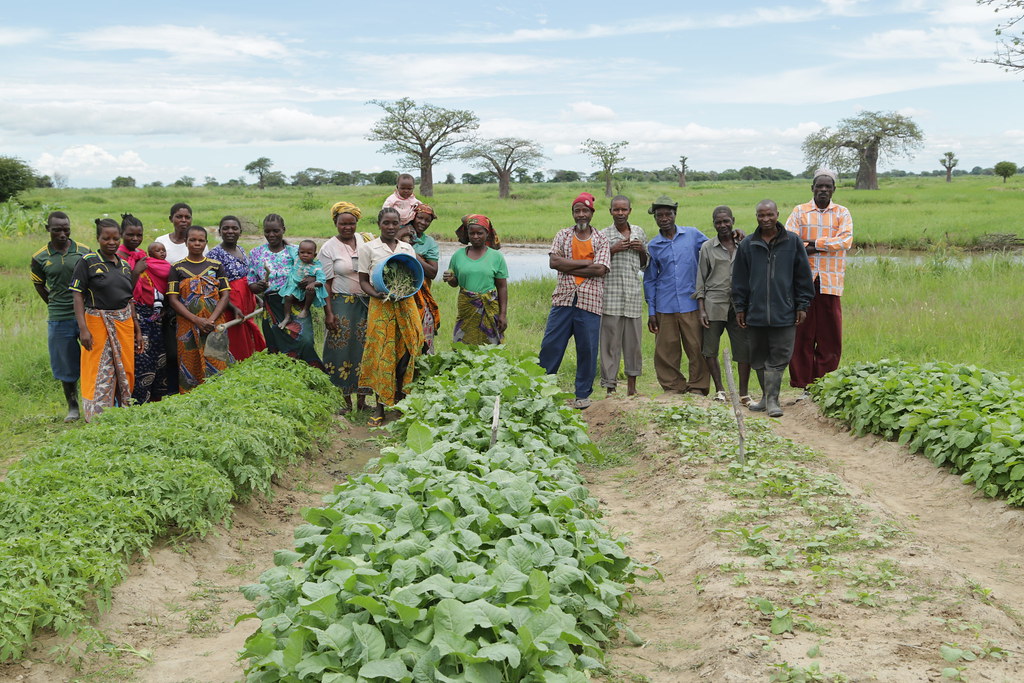
A model that allows farmers to take quick informal loans and repay them without stringent repayment measures like collateral is fast rising across Kenyan rural areas with almost every farmer belonging to a village Savings and Loan Association even as banks struggle to penetrate these traditionally neglected but potential gold mines.
Under the VSL’s as they are commonly known, farmers with a common purpose come together to establish a structure where they contribute. To allow members stick to the organization the scheme farmers are allowed to own shares based on their contributions, making them eligible for loans that they repay with interest.
As more farmers re discover farming for business, being buoyed by the impressive returns, they are now investing in machinery and purchase of high yield crops, that requires huge capital investment. With the tedious procedure of taking loans from commervcial banks that has discouraged majority of the farmers, the VSLA’s have offered respite to the farmers who claim they get loans instantly requiring the contribution of the other members to act as security. “This however means that we have to be very strict with who the members are, because experience has taught us that there are those who benefit and leave without having cleared their loans,” says Damaris Nyokabi, the Treasurer of Mwiheti Farmers savings Association in Nyahururu, which now boasts 150 members from a paltry 12 last year.
Related News: Kenyan nut manufacturers seek local farmers as import costs soar
Related News: Busia start-up raises local millet farmer income through value addition
The rules of engagement in the Nyahururu based VSLA spells that any venture that the farmer takes the loan to finance still belong to the group until the farmer makes 75 percent repayment of the loan. Majority of these saving associations record brisk uptake of loans to buy water pumps, high grade Fleckvieh cows, greenhouse kits, and chaff cutters.
Hannington Pere a secretary from another VSLA in Siaya Kisumu says most of the farmers in the area are still skeptical of approaching banks for loans. “Its not easy for a farmer who has just moved from subsistence farming to agribusiness to just walk into a bank and request for Ksh 100,000 loan to buy a water pump, but at our savings group we can pull together resources and make sure that the farmer buys the pump,” he added.
Take Fleckvieh for example, a cow that is every farmer’s dream that produces 25 litres daily and between the second and third lactation, reaches optimum milk production of 40 litres. The breed imported by cow breeders from Germany has been beyond the reach of many farmers due to its prohibitive cost with a price tag of Sh250, 000 or more. However through the VSLAs farmers especially in Malindi part of Mombasa now own the coveted breed with the number of those who own it in the area standing at around 100 farmers.
Chairlady of Malindi farmers Welfare group says Mrs Abdalla says out of the 80 members they have in the group 30 of them have taken loans to buy Fleckvieh buoyed by success stories of the cow’s performances. 20 of the farmers are now repaying their loans from the proceeds they get from the sale of milk with one farmer having taken a second loan after having repaid three quarter of the loan from sale of the milk. Members repay their loan with a 3percent loan interest compared to banks that charge between 11-15 percent interest rate explaining why farmers opt for the VSLA’s.
Set Kobor VSLA another of the saving farmer in Sotik District has recorded roaring success. Richard, 38, and Caroline, 35, rear two cows through a semi-zero grazing method. They own a chaff cutter, which cost them Sh20,000. The chaff cutter makes preparation of the animals’ feeds easier thanks to the savings group. “I took Sh45,000 loan (Sh15,000 on three different occasions) and my wife also took a similar amount to start dairy farming two years ago.
We have already repaid the loans,” says Richard. The housing unit for the dairy cows cost them Sh45,000. The couple has a moneymaker water pump they bought last year for only Sh2,700. The enthusiastic couple has also planted stevia, a crop suitable for diabetic people. Richard says they are now able to access Artificial Insemination services. The couple exemplifies how VSLA have transformed the lives of hundreds of farmers in Sotik District, by allowing them modest loans that they utilize to invest in farming activities.
Related News: New platform helps link avocado farmers to local and export buyers
Related News: Kenya introduces Mark of Quality for local vegetables and fruits
Village Savings and Loan Associations gained ground in rural areas in in the late 1990s and early 2000s when majority of the formal financial institutions closed their rural operations citing dismal customer base. The informal investment clubs had assisted rural dwellers upgrade what they owned with majority now living like their urban counterparts.
A 2009 report by Financial Sector Deepening Kenya found that rural dwellers had scaled up what they owned with a sizeable number of them now owning a radio, at 80.1 per cent, a sofa set, at 36.1 per cent, and even TVs. The 2009 National Population and Housing survey also identified a marked increase in stone buildings in the rural areas where grass thatched and mud walled houses dominated ten years ago.
















Comments powered by CComment